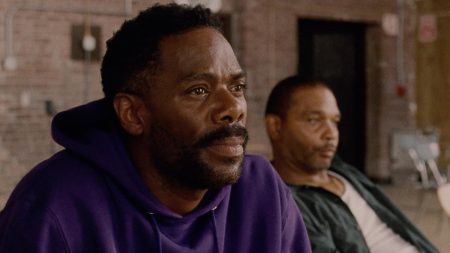The Legendary Jerry Butler: A Soul Icon and Beyond
Jerry Butler, the velvety-voiced soul singer whose baritone captivated audiences for decades, passed away at the age of 85 on Thursday, leaving behind a legacy of music, politics, and timeless artistry. Known affectionately as the "Ice Man," Butler’s career spanned the heights of soul music, politics, and advocacy, cementing his place as one of the most influential figures of his generation. His death, caused by complications from Parkinson’s disease, was confirmed by his niece, Yolanda Goff, who shared that he died peacefully at his home in Chicago—a city he called home for most of his life.
Early Life and the Rise of a Soul Icon
Born to sharecroppers in Mississippi, Butler’s life was shaped by the Great Migration when his family moved to Chicago when he was just 3 years old. Music became his solace and passion from an early age, and his talent was undeniable. At a local church, he met Curtis Mayfield, a friendship that would later lay the foundation for one of the most iconic soul groups of the 1960s: The Impressions. Together, they recorded their breakthrough hit, "For Your Precious Love," in 1958, a gospel-infused ballad that catapulted Butler to stardom before he turned 20. The song’s emotional depth and Butler’s haunting vocals set the tone for a career that would resonate with listeners for decades.
A Solo Career and the Sound of Philadelphia
Butler’s early success with The Impressions led to a solo career, though it was not without its challenges. His 1961 cover of "Moon River," the theme from Breakfast at Tiffany’s, became the first charting version of the song, though it was later overshadowed by Andy Williams’ rendition, a fact Butler reportedly resented for years. Despite this, Butler’s formal, soulful style earned him a string of hits, including "He Will Break Your Heart" and "Find Another Girl." By the late 1960s, he found new inspiration in the vibrant sound emerging from Philadelphia, collaborating with legendary producers Kenneth Gamble and Leon Huff. Together, they crafted timeless classics like "Only the Strong Survive" and "Hey Western Union Man," establishing Butler as a key figure in the "Sound of Philadelphia."
A Songwriter and Storyteller
Butler’s talent extended far beyond his vocal prowess; he was also a gifted songwriter with a knack for writing deeply personal and universally relatable songs. He co-wrote "I’ve Been Loving You Too Long" with Otis Redding, a ballad that became one of Redding’s signature tunes. Another notable collaboration, "Only the Strong Survive," was later covered by Elvis Presley, among others. Butler’s songwriting often drew from his observations of life on the road, as he reflected on the fleeting relationships and emotional complexities of the traveling musician’s life. His ability to craft stories that resonated with listeners earned him widespread acclaim and a place in the Rock and Roll Hall of Fame.
From Music to Politics: A Life of Purpose
By the 1980s, Butler’s music career had slowed, but his desire to make an impact only grew stronger. Inspired by the election of Harold Washington, Chicago’s first Black mayor, Butler turned to politics, winning a seat on the Cook County Board in 1985. He served for over three decades, earning a reputation as a dedicated public servant. Despite his political commitments, Butler never fully retired from music, continuing to perform on weekends and remaining deeply connected to his artistic roots. His dual passions for music and public service reflected his commitment to making a difference, whether through song or policy.
A Life Well-Lived and a Legacy of Love
Butler’s personal life was marked by enduring love and dedication. He was married to his wife, Annette Smith, for 60 years until her death in 2019, and the couple had twin sons together. Known for his financial wisdom and generosity, Butler often helped struggling musicians and family members, earning a reputation as a man of integrity. As chairman of the Rhythm & Blues Foundation, he advocated for better benefits and support for musicians, leaving a lasting impact on the industry he loved. In his later years, Butler reflected on his life with gratitude, telling the Chicago Reader in 2011, "I have lived well. My wife probably would say I could’ve lived better. Did I make 40, 50 million dollars? No. Did I keep one or two? Yes."
Remembering the Ice Man’s Legacy
Jerry Butler’s passing marks the end of an era, but his music and legacy live on. As a singer, songwriter, and advocate, he left an indelible mark on soul music, shaping the sound of both Chicago and Philadelphia. His journey from the stages of the 1960s to the halls of politics is a testament to his resilience, talent, and unwavering commitment to making a difference. With his sm















